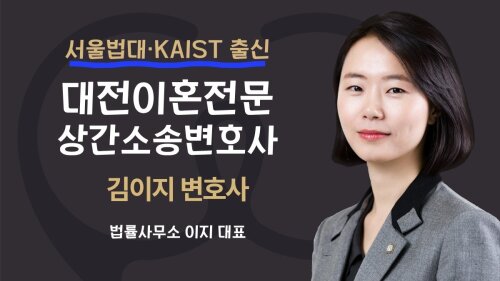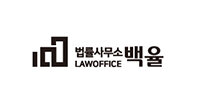Best Divorce & Separation Lawyers in Seo-gu
Share your needs with us, get contacted by law firms.
Free. Takes 2 min.
Free Guide to Hiring a Family Lawyer
List of the best lawyers in Seo-gu, South Korea
About Divorce & Separation Law in Seo-gu, South Korea
Divorce and separation are significant life changes that require an understanding of the law and the legal process. In Seo-gu, a district of Incheon, South Korea, divorce is handled under the framework of Korean civil law. The law provides for both mutual consent divorce and judicial divorce through the courts. Issues such as child custody, spousal support, and division of property are typically resolved either through agreement or judicial rulings. Navigating this process can be complex and emotionally charged, making it essential to be well informed about your rights and obligations.
Why You May Need a Lawyer
While some divorces proceed smoothly by mutual agreement, many situations benefit from the guidance of a legal professional. Consider seeking a lawyer's help in the following circumstances:
- Disagreements about child custody or visitation rights
- Disputes over the division of marital assets or debts
- Concerns about spousal or child support payments
- Domestic violence or abuse within the relationship
- Uncertainty about paperwork and court procedures
- Language barriers or unfamiliarity with legal terms
A lawyer can help protect your interests, ensure fairness, and represent you effectively in negotiations or in court.
Local Laws Overview
Divorce in Seo-gu, as in the rest of South Korea, is governed by the Korean Civil Act and the Family Litigation Act. There are two main types of divorce:
- Divorce by Agreement: Both spouses consent to the divorce and settle ancillary matters such as custody and property division. This requires submission of relevant documents to the local family court, a mandatory cooling-off period, and attendance at counseling sessions.
- Judicial Divorce: If one party does not agree, divorce can be filed on specific grounds such as infidelity, abuse, or irreconcilable differences. The family court assesses the case and renders a decision.
Other local aspects include the requirement for mediation in many contested cases, the involvement of child welfare agencies when children are affected, and recognition of both Korean and international marriages. Jurisdiction typically lies with the court in the district where one or both parties reside, such as the Incheon Family Court serving Seo-gu.
Frequently Asked Questions
What is the difference between separation and divorce in Korea?
Separation usually refers to living apart without formally ending the marriage, while divorce is the legal dissolution of marriage. Korean law does not formally recognize legal separation, so only divorce changes your legal status.
How do I start the divorce process in Seo-gu?
To begin, you need to file for divorce with the family court. For an agreed divorce, both parties visit the court together and complete counseling as required. For contested cases, a petition is filed and the process proceeds through mediation and hearings.
How long does it take to get divorced?
The duration varies. An agreed divorce can take several weeks due to mandatory counseling and the cooling-off period. Contested divorces can take several months or longer, depending on complexity and the court's schedule.
Do I have to appear in court?
For agreed divorces, both spouses must typically appear at the family court. For contested cases, attendance may be required for hearings or mediation. Your lawyer can sometimes represent you in your absence for specific matters.
What happens to our children after divorce?
The court prioritizes the best interests of the child when making custody and visitation decisions. Parents may agree on arrangements, or the court can decide. Child support may also be determined based on income and needs.
How is property divided after divorce?
Korean law aims for an equitable division of marital assets acquired during the marriage, though the outcome depends on factors like contribution and financial need. Debts are also considered in the division process.
Can foreign nationals get divorced in Seo-gu?
Yes, foreign nationals married to Koreans or residing in Korean jurisdiction can seek divorce through the local courts. The process is subject to Korean law, though recognition by foreign authorities should be checked if necessary.
What if my spouse refuses to agree to the divorce?
You can file for judicial divorce based on recognized grounds. The court will evaluate the circumstances and can grant a divorce without the other spouse's agreement if sufficient cause is found.
Is mediation mandatory in divorce cases?
Mediation is required in most contested divorce cases in Korea. It provides an opportunity for parties to settle issues outside of court, but if agreement cannot be reached, the case proceeds to a judicial decision.
What if there has been domestic violence?
If you are experiencing domestic violence, it is crucial to seek safety and contact the police or local support organizations. Domestic violence can be grounds for judicial divorce, and special protective orders may be available to safeguard you and your children.
Additional Resources
Several resources are available to assist with divorce and separation matters in Seo-gu:
- Incheon Family Court - Handles divorce filings, mediation, and related proceedings
- Korean Legal Aid Corporation (KLAC) - Offers free or low-cost legal consultations and representation
- Seo-gu District Office, Family Services - Provides counseling, child welfare support, and referrals
- Women’s Hotlines and Support Centers - For those facing domestic violence or who need counseling
- Legal clinics and private family law attorneys - For detailed, case-specific legal advice
Next Steps
If you are considering separation or divorce in Seo-gu, follow these steps:
- Gather important documents such as marriage certificates, identification, and records of assets or debts.
- Consider your desired outcomes regarding children, property, and support.
- Seek initial advice from a family lawyer or the Korean Legal Aid Corporation to understand your rights and options.
- If safe and possible, attempt to consult with your spouse about an amicable formal process.
- If agreement cannot be reached, prepare for possible court proceedings with your lawyer’s guidance.
- Utilize local resources for emotional support and child counseling if needed.
Legal matters around divorce and separation are often complex and emotionally taxing. Consulting a qualified attorney will help ensure your interests are protected and your questions are answered as you move forward.
Lawzana helps you find the best lawyers and law firms in Seo-gu through a curated and pre-screened list of qualified legal professionals. Our platform offers rankings and detailed profiles of attorneys and law firms, allowing you to compare based on practice areas, including Divorce & Separation, experience, and client feedback.
Each profile includes a description of the firm's areas of practice, client reviews, team members and partners, year of establishment, spoken languages, office locations, contact information, social media presence, and any published articles or resources. Most firms on our platform speak English and are experienced in both local and international legal matters.
Get a quote from top-rated law firms in Seo-gu, South Korea — quickly, securely, and without unnecessary hassle.
Disclaimer:
The information provided on this page is for general informational purposes only and does not constitute legal advice. While we strive to ensure the accuracy and relevance of the content, legal information may change over time, and interpretations of the law can vary. You should always consult with a qualified legal professional for advice specific to your situation.
We disclaim all liability for actions taken or not taken based on the content of this page. If you believe any information is incorrect or outdated, please contact us, and we will review and update it where appropriate.










